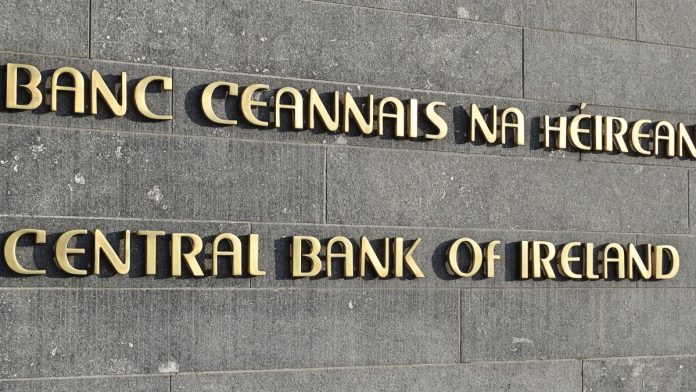The Central Bank of Ireland has warned that the country is lagging behind other European nations in terms of payments adoption, particularly retail payments.
Last year, Ireland’s Department of Finance unveiled its plans for a National Payments Strategy with a central focus on cash access and cash acceptance in Ireland.
Under government plans announced last summer, this strategy will be implemented this year. In response, the Central Bank has published some recommendations as to what areas it feels the strategy should address, and how.
As noted above, retail payments is an area the Central Bank believes Ireland needs to catch up to other European countries.
Vasileios Madouros, the bank’s Deputy Governor, noted that the Irish payments landscape has changed greatly since the last National Payments Plan was announced in 2011.
“Since the last National Payments Plan, a little over a decade ago, there has been remarkable change and innovation in domestic payments,” he said.
“But there are also important areas where Ireland is still lagging behind. Consumers having greater access to payment solutions is dependent on the market grasping the opportunities available.
“Despite the instant payments infrastructure being available since 2017, material providers of payment accounts in Ireland have not implemented it. For consumers and businesses, this is an unsatisfactory outcome.”
Like other European nations, finance and financial technology has taken on increased importance to Ireland’s economy over recent years as more traditional industries, such as heavy industry, have declined.
The country’s regulator has been active in issuing Electronic Money Institution (EMI) licence to various companies over recent years, and has also been notably governing the expanding digital asset and crypto space in the country.
Development and innovation in the technology sector has expanded beyond payments and to supporting other industries. For example, leading US operator PointsBet acquired Dublin-based tech-firm Banach Technologies, setting up a tech hub in the capital city.
Madouros continued: “Ireland is host to a growing and innovative payments sector. Ireland is also the base of a very innovative technology sector. And people have shown they are willing, and eager, to embrace new technology in payments.
“Yet many of the benefits of technology in relation to payments for domestic consumers and the broader economy remain untapped. The development of the National Payments Strategy by the Department of Finance offers an opportunity to change that and we, in the Central Bank of Ireland, look forward to playing our part.”
The Central Bank has drafted four priorities it believes should define the future direction of Ireland’s National Payments Strategy, and should be adhered to by both itself and the Department of Finance.
Firstly, the bank believes that ‘coordinated action’ is needed for Ireland to seize the benefits of innovation and integration ‘in a European context’, explaining that payment account operators need to ensure both consumers and small businesses benefit from the innovations that exist elsewhere in Europe.
Cross-border integration appears to be a key area of focus here with the bank adding that ‘emerging payment solutions shall be integrated with Europe and interoperable with other key markets, where possible’.
The Central Bank may be in luck with this ambition when it comes to cooperation with the European Central Bank (ECB).
The ECB is in the process of persuading EU legislators and payments stakeholders to move ahead with a digital euro – cooperation with national central banks such as Ireland’s is and will continue to be central to this, and there could be room for collaboration in other areas.
Secondly, the bank has underscored the importance of ensuring cash remains a means of payment for Irish consumers.
This is a concern which the bank also shares with other national monetary authorities inother European countries, including nations both in and outside of the EU.
Access to cash across a number of European countries has been limited by the decline of retail banking. In response to increasing use of cashless payments methods and online banking services, many banks have been stripping back their retail operations.
However, this has led to concerns that people who prefer to use physical cash or who rely on it more – such as the elderly – have seen access to banknotes limited.
On the other hand, the Bank of Ireland, the commercial bank not the Central Bank of Ireland referred to in this article, has sought to maintain access to cash throughout both the Republic and Northern Ireland by upgrading its ATM network.
In its response to the NPS, the Central Bank detailed: “Cash should remain widely available and accepted as a means of payment, and this choice should be safeguarded for consumers and businesses.”
The Bank’s third priority is for maintenance of security and payments resilience, calling for a range of payments stakeholders – issuers, operators, participants, and enabling network providers – to collectively work on the security and resilience of the national ecosystem.
Finally, the Bank wants to enhance research and analysis, again arguing that achieving this goal will require extensive cross-sector collaboration.
“National public authorities, industry associations, and research bodies shall enhance capacity for better informed policy decisions on payments, through research and analytical insights,” the bank outlined.
Madouros concluded: “The National Payments Strategy offers an opportunity to take a longer-term view and develop a coherent, system-wide approach to the future evolution of payments in Ireland, within a European context.
“Like any societal transition, the technology-driven evolution in the payments landscape needs to be managed carefully from a public policy perspective.
“Making the most of that opportunity will be critical. Because a healthy and competitive economy relies on an innovative, inclusive and resilient payments ecosystem.”























